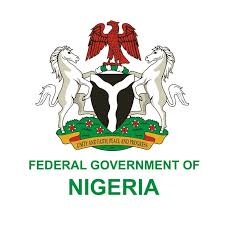The Minister of State for Humanitarian Affairs and Poverty Reduction, Tanko Sununu, has reaffirmed the federal government’s commitment to alleviating poverty across Nigeria.
Speaking yesterday as a guest on Channels Television’s Sunrise Daily, Sununu revealed that over two million poor households have been identified and will soon benefit from the government’s cash transfer program.
“In the next few days to come, before the end of August, we are going to reach out to 2.2 million households,” the minister stated. He elaborated on the selection process, noting that “The process is such that the National Social Safety-Net Coordinating Office, NASSCO, will now harvest vulnerable Nigerians based on their lowest cadre in the national social register.”
Sununu highlighted the administration’s ongoing interventions for poor and vulnerable citizens, citing significant progress under the Conditional Cash Transfer programme. “For those Nigerians, it is a rapid conditional cash transfer. So far, we have disbursed N419 billion to five million Nigerians. We have distributed 71 per cent in the northern part and 21 per cent in the southern part of the country,” he disclosed.
At a separate event in Abuja, the minister expressed deep concern over Nigeria’s worsening humanitarian situation, revealing that more than three million people remain internally displaced due to flooding, insecurity, and natural disasters. He warned that millions risk sliding deeper into hunger and malnutrition as global aid funding decreases.
“Globally, humanitarian funding is shrinking, and Nigeria is not exempted,” Sununu stated. “Just a few days ago, the World Food Programme suspended some of its activities, which had supported more than 1.2 million Nigerians with emergency transfers in the North-East. This leaves over 300,000 children at risk of malnutrition, while more than 200,000 are already receiving treatment.”
The minister emphasized the uneven distribution of poverty, noting that northern Nigeria accounts for approximately 65 percent of the nation’s poor population. “Out of this 65 percent, more than 70 percent are smallholder farmers. Sadly, most of them have lost their farmlands and livelihoods to floods and droughts,” he explained.
In response to these challenges, Sununu detailed strengthened interventions through the National Social Investment Programme. Under the Government Enterprise and Empowerment Programme, smallholder farmers have received interest-free loans of N300,000 each to help recover from losses.
Additionally, he revealed that more than 5.9 million households—approximately 25 million Nigerians—have benefited from N419 billion in conditional cash transfers designed to cushion economic hardship.
“These efforts are part of President Bola Tinubu’s commitment to ensuring that Nigerians maintain dignity of life despite economic challenges,” Sununu affirmed. “With the support of the House of Representatives, we will continue to work to protect vulnerable households and restore livelihoods.”
During the inauguration of the House of Representatives ad hoc committee on flood management and response, Speaker Abbas Tajudeen, represented by House Leader Prof. Julius Ihombvere, charged members to develop both immediate and long-term solutions to Nigeria’s recurring flood crisis. He described flooding as an economic, social, and humanitarian challenge that has inflicted devastating losses on communities.
“Flooding goes beyond being a mere environmental issue. It is an economic, social, and humanitarian challenge. Every year, thousands of families are displaced, farmlands are submerged, and critical infrastructure is washed away. These tragedies demand deliberate and well-coordinated responses,” the Speaker emphasized.
Tajudeen stressed the House’s commitment to addressing issues directly affecting Nigerians and urged the committee to identify gaps in the nation’s preparedness while recommending a clear roadmap for flood resilience.
He called for close collaboration with key agencies including NEMA, ministries of environment, water resources, health, works, and housing, as well as state and local governments.
The Speaker also highlighted the Nigerian Space Agency’s role in providing satellite imagery for effective flood mapping, concluding that “Flood management requires the concerted involvement of all relevant stakeholders. Only a holistic and coordinated approach will ensure a sustainable response.”







